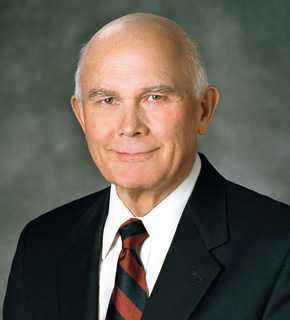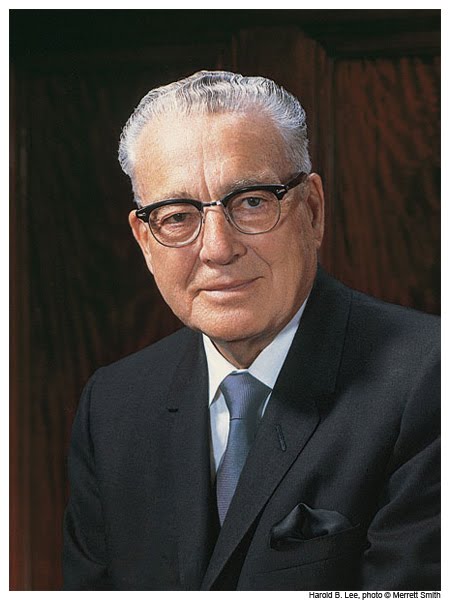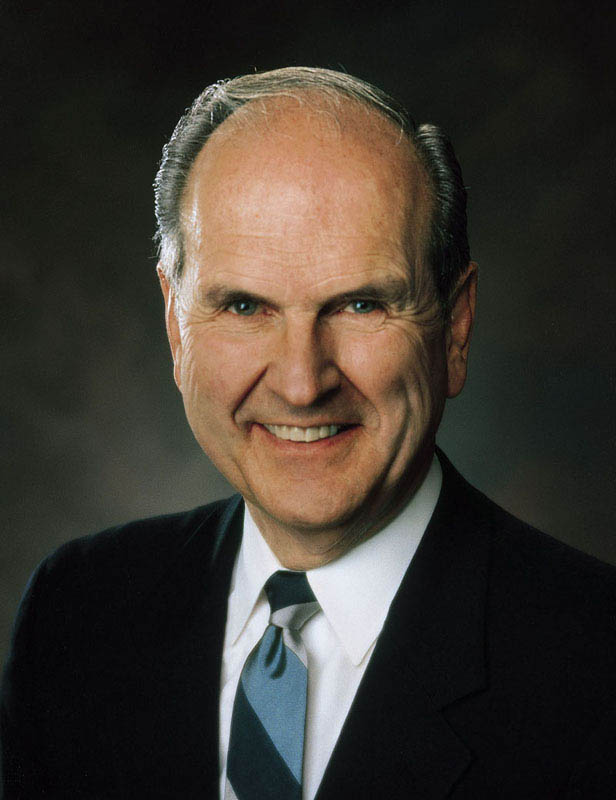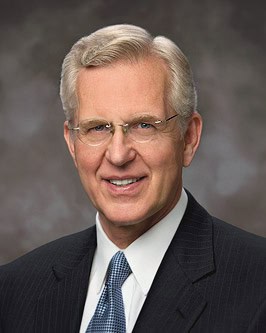Conversion
SEARCH BY TITLE
 “According to the Desire of [Our] Hearts”
“According to the Desire of [Our] Hearts”
Exemplifying this happy reality are the doctrinal teachings concerning desire, which relates so directly to our moral agency and our individuality. Whether in their conception or expression, our desires profoundly affect the use of our moral agency. Desires thus become real determinants, even when, with pitiful naivete, we do not really want the consequences of our desires. Desire denotes a real longing or craving. Hence righteous desires are much more than passive preferences or fleeting feelings. Of course our genes, circumstances, and environments matter very much, and they shape us significantly. Yet there remains an inner zone in which we are sovereign, unless we abdicate. In this zone lies the essence of our individuality and our personal accountability. Therefore, what we insistently desire, over time, is what we will eventually become and what we will receive in eternity.
 The Challenge to Become
The Challenge to Become
This process requires far more than acquiring knowledge. It is not even enough for us to be convinced of the gospel; we must act and think so that we are converted by it. In contrast to the institutions of the world, which teach us to know something, the gospel of Jesus Christ challenges us to become something. . . From such teachings we conclude that the Final Judgment is not just an evaluation of a sum total of good and evil acts—what we have done. It is an acknowledgment of the final effect of our acts and thoughts—what we have become. It is not enough for anyone just to go through the motions. The commandments, ordinances, and covenants of the gospel are not a list of deposits required to be made in some heavenly account. The gospel of Jesus Christ is a plan that shows us how to become what our Heavenly Father desires us to become. . . Jesus’ challenge shows that the conversion He required for those who would enter the kingdom of heaven was far more than just being converted to testify to the truthfulness of the gospel. To testify is to know and to declare. The gospel challenges us to be “converted,” which requires us to do and to become. If any of us relies solely upon our knowledge and testimony of the gospel, we are in the same position as the blessed but still unfinished Apostles whom Jesus challenged to be “converted.”
 Converted to His Gospel through His Church
Converted to His Gospel through His Church
Some have come to think of activity in the Church as the ultimate goal. Therein lies a danger. It is possible to be active in the Church and less active in the gospel. Let me stress: activity in the Church is a highly desirable goal; however, it is insufficient. Activity in the Church is an outward indication of our spiritual desire. If we attend our meetings, hold and fulfill Church responsibilities, and serve others, it is publicly observed. By contrast, the things of the gospel are usually less visible and more difficult to measure, but they are of greater eternal importance. For example, how much faith do we really have? How repentant are we? How meaningful are the ordinances in our lives? How focused are we on our covenants? I repeat: we need the gospel and the Church. In fact, the purpose of the Church is to help us live the gospel. We often wonder: How can someone be fully active in the Church as a youth and then not be when they are older? How can an adult who has regularly attended and served stop coming? How can a person who was disappointed by a leader or another member allow that to end their Church participation? Perhaps the reason is they were not sufficiently converted to the gospel—the things of eternity. I suggest three fundamental ways to have the gospel be our foundation: . . . Deepen our understanding of Deity. . . Focus on the ordinances and covenants. . . Unite the gospel with the Church.
 Full Conversion Brings Happiness
Full Conversion Brings Happiness
Sometimes the word converted is used to describe when a sincere individual decides to be baptized. However, when properly used, conversion means far more than that, for the new convert as well as the long-term member. With characteristic doctrinal clarity and precision, President Marion G. Romney explained conversion: “Converted means to turn from one belief or course of action to another. Conversion is a spiritual and moral change. Converted implies not merely mental acceptance of Jesus and his teachings but also a motivating faith in him and his gospel. A faith which works a transformation, an actual change in one’s understanding of life’s meaning and in his allegiance to God in interest, in thought, and in conduct. In one who is really wholly converted, desire for things contrary to the gospel of Jesus Christ has actually died. And substituted therefore is a love of God, with a fixed and controlling determination to keep his commandments.” To be converted, you must remember to apply diligently in your life the key words “a love of God, with a fixed and controlling determination to keep his commandments.” Your happiness now and forever is conditioned on your degree of conversion and the transformation that it brings to your life. How then can you become truly converted? President Romney describes the steps you must follow: “Membership in the Church and conversion are not necessarily synonymous. Being converted and having a testimony are not necessarily the same thing either. A testimony comes when the Holy Ghost gives the earnest seeker a witness of the truth. A moving testimony vitalizes faith. That is, it induces repentance and obedience to the commandments. Conversion is the fruit or the reward for repentance and obedience.” Stated simply, true conversion is the fruit of faith, repentance, and consistent obedience. Faith comes by hearing the word of God and responding to it. You will receive from the Holy Ghost a confirming witness of things you accept on faith by willingly doing them. You will be led to repent of errors resulting from wrong things done or right things not done. As a consequence, your capacity to consistently obey will be strengthened. This cycle of faith, repentance, and consistent obedience will lead you to greater conversion with its attendant blessings. True conversion will strengthen your capacity to do what you know you should do, when you should do it, regardless of the circumstances.
 The Gospel and the Church
The Gospel and the Church
We should obey the commandments and counsel of Church leaders; but also through study, through prayer, and by the influence of the Holy Spirit, we should seek and obtain an individual, personal witness that the principle or counsel is correct and divinely inspired. Then we can give enlightened, enthusiastic obedience, utilizing the Church as a means through which to give allegiance, time, talent, and other resources without reluctance or resentment. Happy, fulfilling participation in the Church results when we relate Church goals, programs, and policies to gospel principles and to personal eternal goals. When we see the harmony between the gospel and the Church in our daily lives, we are much more likely to do the right things for the right reasons. We will exercise self-discipline and righteous initiative guided by Church leaders and a sense of divine accountability. The Church aids us in our effort to use our free agency creatively, not to invent our own values, principles, and interpretations, but to learn and live the eternal truths of the gospel. Gospel living is a process of continuous individual renewal and improvement until the person is prepared and qualified to enter comfortably and with confidence into the presence of God. My brothers and sisters, by inclination, training, and experience most of my life I have sought understanding by the accumulation of facts and the application of reason. I continue to do so. However, that which I know most surely and which has most significantly and positively affected my life I do not know by facts and reason alone, but rather by the comforting, confirming witness of the Holy Spirit.
 The Iron Rod
The Iron Rod
To settle an apparent controversy among his disciples as to who would be the greatest in the kingdom of God, he said: “… except ye be converted, and become as little children, ye shall not enter into the kingdom of [God].” To become converted, according to the scriptures, meant having a change of heart and the moral character of a person turned from the controlled power of sin into a righteous life. It meant to “wait patiently on the Lord” until one’s prayers can be answered and until his heart, as Cyprian, a defender of the faith in the Apostolic Period, testified, and I quote, “Into my heart, purified of all sin, there entered a light which came from on high, and then suddenly and in a marvelous manner, I saw certainty succeed doubt.” Conversion must mean more than just being a “card carrying” member of the Church with a tithing receipt, a membership card, a temple recommend, etc. It means to overcome the tendencies to criticize and to strive continually to improve inward weaknesses and not merely the outward appearances. The Lord issued a warning to those who would seek to destroy the faith of an individual or lead him away from the word of God or cause him to lose his grasp on the “iron rod,” wherein was safety by faith in a Divine Redeemer and his purposes concerning this earth and its peoples.
 Jesus Christ, Our Redeemer
Jesus Christ, Our Redeemer
The plan is really very simple when considered in its essence. The Lord has told us that we are here to be tried—to be proven, to see whether we will be valiant and be obedient to His teachings. You among all of the people on earth have the best possibility of doing that because you have access to the fulness of the restored gospel and the teachings of the Savior. In quiet moments when you think about it, you recognize what is critically important in life and what isn’t. Be wise and don’t let good things crowd out those that are essential. What are the essential ones? They are related to doctrine. They are centered in ordinances and embrace critical covenants. Those ordinances are baptism and confirmation into His Church and kingdom on earth. For men they include worthy ordination to the Melchizedek Priesthood and honoring and using it in service to others. For each adult man and woman, they entail all of the ordinances of the temple, including one’s own personal endowment. They embody the sealing ordinance of the temple where a man and wife are bound so that through obedience they can live together for time and all eternity. When faithful, the children born to that union or later sealed to their parents are joined in love and rejoicing throughout all eternity. To receive all of the blessings of His atoning sacrifice, we are only asked to be obedient to His commandments and to receive all of these essential ordinances. The Atonement will not only help us overcome our transgressions and mistakes, but in His time, it will resolve all inequities of life—those things that are unfair which are the consequences of circumstance or others’ acts and not our own decisions. While some may not understand or agree, I testify that it is not sufficient to be baptized and then live an acceptable life, avoiding major transgressions. The Lord has decreed that the additional ordinances and covenants that I have mentioned must be received for exaltation and eternal life. Being worthy of temple ordinances means that you will choose to do what many in the world are not willing to do. You will keep the Sabbath day holy, exercise faith through the payment of tithing and fast offerings, consistently participate in Church worship, give service, and show love and appreciation for your family by helping each member of it. After you have received all of the temple ordinances, you will continue to grow by keeping the covenants made and faithfully “endur[ing] to the end.
 Perfection Pending
Perfection Pending
If I were to ask which of the Lord’s commandments is most difficult to keep, many of us might cite Matthew 5:48: “Be ye therefore perfect, even as your Father which is in heaven is perfect.” Keeping this commandment can be a concern because each of us is far from perfect, both spiritually and temporally. Reminders come repeatedly. We may lock keys inside the car, or even forget where the car is parked. And not infrequently we walk intently from one part of the house to another, only to forget the reason for the errand. When comparing one’s personal performance with the supreme standard of the Lord’s expectation, the reality of imperfection can at times be depressing. My heart goes out to conscientious Saints who, because of their shortcomings, allow feelings of depression to rob them of happiness in life. We all need to remember: men are that they might have joy—not guilt trips! We also need to remember that the Lord gives no commandments that are impossible to obey. But sometimes we fail to comprehend them fully. Our understanding of perfection might be aided if we classify it into two categories. The first could pertain uniquely to this life—mortal perfection. The second category could pertain uniquely to the next life—immortal or eternal perfection.
 Salt of the Earth: Savor of Men and Saviors of Men
Salt of the Earth: Savor of Men and Saviors of Men
When the Lord used the expression “savor of men,” he was speaking of those who represent him. He was referring to those who have repented, who have been washed clean in the waters of baptism, and who have covenanted to take upon them his name and his cause. Moreover, he was speaking of those who would share by covenant his priesthood power. He was speaking of you and me. A world-renowned chemist told me that salt will not lose its savor with age. Savor is lost through mixture and contamination. Similarly, priesthood power does not dissipate with age; it, too, is lost through mixture and contamination. When a young man or older man mixes his thoughts with pornographic literature, he suffers a loss of savor. When a priesthood bearer mixes his speech with lies or profanity, he suffers a loss of savor.When one of us follows the crowd and becomes involved in immoral acts and the use of drugs, tobacco, alcohol, and other injurious substances, he loses savor. Flavor and quality flee a man when he contaminates his mind with unclean thoughts, desecrates his mouth by speaking less than the truth, and misapplies his strength in performing evil acts. King Benjamin cautioned, “Watch yourselves, and your thoughts, and your words, and your deeds, and observe the commandments of God”. I would offer these simple guidelines, especially to the young men, as the means to preserve one’s savor: If it is not clean, do not think it; if it is not true, do not speak it; if it is not good, do not do it.
When Thou Art Converted
How can you become converted? How can you make the gospel of Jesus Christ not just an influence in your life but the controlling influence and, indeed, the very core of what you are? The ancient prophet Jeremiah spoke of the law of God, the gospel, being written in our hearts. He quotes the Lord speaking about us, His people in the latter days: “I will put my law in their inward parts, and write it in their hearts; and will be their God, and they shall be my people.” Do you want this for yourself? I can tell you how that can happen, but it must be something you want. The gospel cannot be written in your heart unless your heart is open. Without a heartfelt desire, you can participate in sacrament meetings, classes, and Church activities and do the things I will tell you, but it won’t make much difference. But if your heart is open and willing, like the heart of a child, let me tell you what you can do to be converted. . . Don’t be afraid of the effort required. And remember, you don’t have to do it alone. Jesus Christ will help you make of yourself a worthy gift. His grace will make you clean, even holy. Eventually, you will become like Him, “perfect in Christ.” With conversion, you will wear a protective armor, “the whole armour of God,” and the words of Christ, which come by the Holy Spirit, “will tell you all things” you should do.
